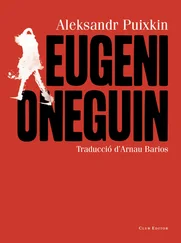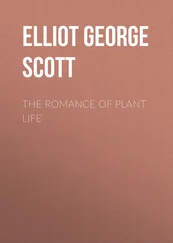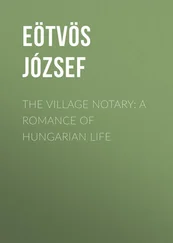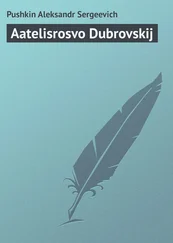Aleksandr Pushkin - Eugene Oneguine [Onegin]. A Romance of Russian Life in Verse
Здесь есть возможность читать онлайн «Aleksandr Pushkin - Eugene Oneguine [Onegin]. A Romance of Russian Life in Verse» весь текст электронной книги совершенно бесплатно (целиком полную версию без сокращений). В некоторых случаях можно слушать аудио, скачать через торрент в формате fb2 и присутствует краткое содержание. Год выпуска: 2007, Жанр: Поэзия, на английском языке. Описание произведения, (предисловие) а так же отзывы посетителей доступны на портале библиотеки ЛибКат.
- Название:Eugene Oneguine [Onegin]. A Romance of Russian Life in Verse
- Автор:
- Жанр:
- Год:2007
- ISBN:нет данных
- Рейтинг книги:4 / 5. Голосов: 1
-
Избранное:Добавить в избранное
- Отзывы:
-
Ваша оценка:
- 80
- 1
- 2
- 3
- 4
- 5
Eugene Oneguine [Onegin]. A Romance of Russian Life in Verse: краткое содержание, описание и аннотация
Предлагаем к чтению аннотацию, описание, краткое содержание или предисловие (зависит от того, что написал сам автор книги «Eugene Oneguine [Onegin]. A Romance of Russian Life in Verse»). Если вы не нашли необходимую информацию о книге — напишите в комментариях, мы постараемся отыскать её.
Eugene Oneguine [Onegin]. A Romance of Russian Life in Verse — читать онлайн бесплатно полную книгу (весь текст) целиком
Ниже представлен текст книги, разбитый по страницам. Система сохранения места последней прочитанной страницы, позволяет с удобством читать онлайн бесплатно книгу «Eugene Oneguine [Onegin]. A Romance of Russian Life in Verse», без необходимости каждый раз заново искать на чём Вы остановились. Поставьте закладку, и сможете в любой момент перейти на страницу, на которой закончили чтение.
Интервал:
Закладка:
XXXVIII
Likewise an epitaph with tears
He writes upon his parents' tomb,
And thus ancestral dust reveres.
Oh! on the fields of life how bloom
Harvests of souls unceasingly
By Providence's dark decree!
They blossom, ripen and they fall
And others rise ephemeral!
Thus our light race grows up and lives,
A moment effervescing stirs,
Then seeks ancestral sepulchres,
The appointed hour arrives, arrives!
And our successors soon shall drive
Us from the world wherein we live.
XXXIX
Meantime, drink deeply of the flow
Of frivolous existence, friends;
Its insignificance I know
And care but little for its ends.
To dreams I long have closed mine eyes,
Yet sometimes banished hopes will rise
And agitate my heart again;
And thus it is 'twould cause me pain
Without the faintest trace to leave
This world. I do not praise desire,
Yet still apparently aspire
My mournful fate in verse to weave,
That like a friendly voice its tone
Rescue me from oblivion.
XL
Perchance some heart 'twill agitate,
And then the stanzas of my theme
Will not, preserved by kindly Fate,
Perish absorbed by Lethe's stream.
Then it may be, O flattering tale,
Some future ignoramus shall
My famous portrait indicate
And cry: he was a poet great!
My gratitude do not disdain,
Admirer of the peaceful Muse,
Whose memory doth not refuse
My light productions to retain,
Whose hands indulgently caress
The bays of age and helplessness.
End of Canto the Second.
CANTO THE THIRD
The Country Damsel
'Elle etait fille, elle etait amoureuse'
MalfilatreI
"Whither away? Deuce take the bard!"—
"Good-bye, Oneguine, I must go."—
"I won't detain you; but 'tis hard
To guess how you the eve pull through."—
"At Larina's."—"Hem, that is queer!
Pray is it not a tough affair
Thus to assassinate the eve?"—
"Not at all."—"That I can't conceive!
'Tis something of this sort I deem.
In the first place, say, am I right?
A Russian household simple quite,
Who welcome guests with zeal extreme,
Preserves and an eternal prattle
About the rain and flax and cattle."—
II
"No misery I see in that"—
"Boredom, my friend, behold the ill—"
"Your fashionable world I hate,
Domestic life attracts me still,
Where—"—"What! another eclogue spin?
For God's sake, Lenski, don't begin!
What! really going? 'Tis too bad!
But Lenski, I should be so glad
Would you to me this Phyllis show,
Fair source of every fine idea,
Verses and tears et cetera.
Present me."—"You are joking."—"No."—
"Delighted."—"When?"—"This very night.
They will receive us with delight."
III
Whilst homeward by the nearest route
Our heroes at full gallop sped,
Can we not stealthily make out
What they in conversation said?—
"How now, Oneguine, yawning still?"—
"'Tis habit, Lenski."—"Is your ill
More troublesome than usual?"—"No!
How dark the night is getting though!
Hallo, Andriushka, onward race!
The drive becomes monotonous—
Well! Larina appears to us
An ancient lady full of grace.—
That bilberry wine, I'm sore afraid,
The deuce with my inside has played."
IV
"Say, of the two which was Tattiana?"
"She who with melancholy face
And silent as the maid Svetlana [32] "Svetlana," a short poem by Joukovski, upon which his fame mainly rests. Joukovski was an unblushing plagiarist. Many eminent English poets have been laid under contribution by him, often without going through the form of acknowledging the source of inspiration. Even the poem in question cannot be pronounced entirely original, though its intrinsic beauty is unquestionable. It undoubtedly owes its origin to Burger's poem "Leonora," which has found so many English translators. Not content with a single development of Burger's ghastly production the Russian poet has directly paraphrased "Leonora" under its own title, and also written a poem "Liudmila" in imitation of it. The principal outlines of these three poems are as follows: A maiden loses her lover in the wars; she murmurs at Providence and is vainly reproved for such blasphemy by her mother. Providence at length loses patience and sends her lover's spirit, to all appearances as if in the flesh, who induces the unfortunate maiden to elope. Instead of riding to a church or bridal chamber the unpleasant bridegroom resorts to the graveyard and repairs to his own grave, from which he has recently issued to execute his errand. It is a repulsive subject. "Svetlana," however, is more agreeable than its prototype "Leonora," inasmuch as the whole catastrophe turns out a dream brought on by "sorcery," during the "sviatki" or Holy Nights (see Canto V. st. x), and the dreamer awakes to hear the tinkling of her lover's sledge approaching. "Svetlana" has been translated by Sir John Bowring.
Hard by the window took her place."—
"The younger, you're in love with her!"
"Well!"—"I the elder should prefer,
Were I like you a bard by trade—
In Olga's face no life's displayed.
'Tis a Madonna of Vandyk,
An oval countenance and pink,
Yon silly moon upon the brink
Of the horizon she is like!"—
Vladimir something curtly said
Nor further comment that night made.
V
Meantime Oneguine's apparition
At Larina's abode produced
Quite a sensation; the position
To all good neighbours' sport conduced.
Endless conjectures all propound
And secretly their views expound.
What jokes and guesses now abound,
A beau is for Tattiana found!
In fact, some people were assured
The wedding-day had been arranged,
But the date subsequently changed
Till proper rings could be procured.
On Lenski's matrimonial fate
They long ago had held debate.
VI
Of course Tattiana was annoyed
By such allusions scandalous,
Yet was her inmost soul o'erjoyed
With satisfaction marvellous,
As in her heart the thought sank home,
I am in love, my hour hath come!
Thus in the earth the seed expands
Obedient to warm Spring's commands.
Long time her young imagination
By indolence and languor fired
The fated nutriment desired;
And long internal agitation
Had filled her youthful breast with gloom,
She waited for—I don't know whom!
VII
The fatal hour had come at last—
She oped her eyes and cried: 'tis he!
Alas! for now before her passed
The same warm vision constantly;
Интервал:
Закладка:
Похожие книги на «Eugene Oneguine [Onegin]. A Romance of Russian Life in Verse»
Представляем Вашему вниманию похожие книги на «Eugene Oneguine [Onegin]. A Romance of Russian Life in Verse» списком для выбора. Мы отобрали схожую по названию и смыслу литературу в надежде предоставить читателям больше вариантов отыскать новые, интересные, ещё непрочитанные произведения.
Обсуждение, отзывы о книге «Eugene Oneguine [Onegin]. A Romance of Russian Life in Verse» и просто собственные мнения читателей. Оставьте ваши комментарии, напишите, что Вы думаете о произведении, его смысле или главных героях. Укажите что конкретно понравилось, а что нет, и почему Вы так считаете.











